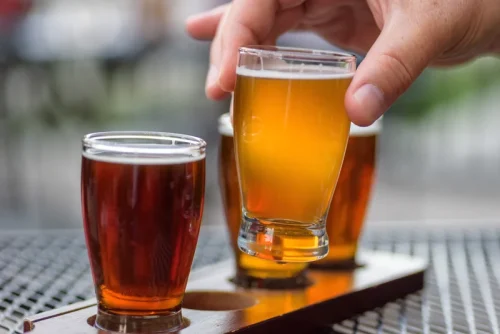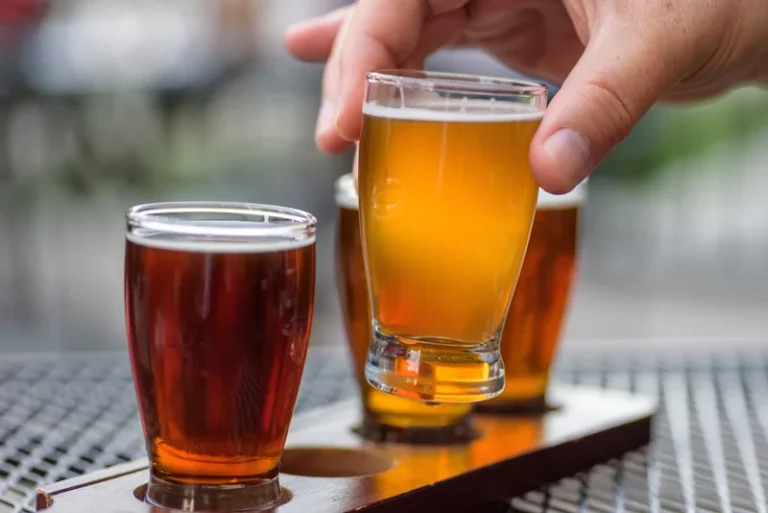
There is no evidence to suggest that specific types of alcohol are more likely to induce sneezing. However, some individuals may find certain alcoholic beverages, such as wine or beer, more likely to trigger the sneezing reflex due to their individual sensitivities. The sneezing reflex after drinking alcohol is primarily caused by vasodilation, which increases the sensitivity of the nerve endings in your nasal passages.
What causes the sneezing reflex after consuming alcohol?
In contrast, a food intolerance or sensitivity, which is more common, involves the digestive system and typically presents less severe symptoms, such as digestive problems. Chemicals like sulfites, which are present in beer after fermentation, can also trigger allergic reactions. Dilated blood vessels can cause inflammation and swelling in the nasal passages. In some people, drinking alcohol may also trigger an allergic reaction, which can cause sneezing and other symptoms. While simple “beer sneezes” are nothing to be concerned about if the symptoms are mild, it is important to seek medical advice if you notice that your symptoms persist or become more severe.
Aggravation of Alcohol-Induced Snoring
People can also have an oral allergy syndrome — a reaction to fresh fruit and vegetables that may be used as a garnish or a mixer in a cocktail, according to Bassett. Hazelnut or almond in liquor can also be a problem for those with an allergy to nuts. She has tried different types of alcohol — vodka, whiskey or tequila — but she breaks out in hives and a fever. After just a few “tiny sips,” thinking she will be fine, Brown said she ends up “going down the same dreadful path Jack Daniels led me down.” Dec. 24, 2012— — Kristin Brown loved to drink – perhaps partied a little too much when she was in her 20s, but when she hit her 30s, alcohol suddenly hit her the wrong way.

Histamines

Some people are more sensitive to histamine than others – if you’re prone to allergies or have a histamine intolerance, the histamine content of wine might be the cause of these symptoms. If you suspect you have alcohol intolerance, it is best to consult a healthcare professional for an accurate diagnosis and advice. Few things can be more frustrating than enjoying a drink with friends only to be interrupted by incessant sneezing. Alcohol-induced sneezing is a peculiar phenomenon that affects a small percentage of individuals. While the exact cause is not fully understood, several theories attempt to explain why some people experience this reaction.
Alcohol
Ultimately, each person’s reaction to alcohol can vary, so understanding your body’s unique response is key. Yes, it’s common for people who don’t usually snore to start snoring after drinking alcohol. This happens because alcohol temporarily changes how your throat muscles work during sleep. For habitual drinkers, the repeated impact of alcohol on sleep quality can lead to chronic sleep-disordered breathing conditions, such as snoring progressing to mild or moderate sleep apnea. While snoring is one visible issue linked to alcohol consumption, its impact on sleep goes much deeper.
Yes, if drinking beer triggers sneezing, it is advised to avoid beer or choose low-histamine alcoholic beverages. However, it is important to note why do i sneeze when i drink alcohol that individual tolerance varies, and the best alternative is to avoid alcohol entirely if it causes negative reactions. If you experience persistent or severe symptoms after drinking beer, it is recommended to consult a doctor or medical professional. They can help identify the specific cause of your reaction and provide guidance on managing your condition. The onset of symptoms is usually noticed by slightly more laboured breathing after consuming alcohol.
- This will reduce the alcohol in the drink and make it less likely to trigger a sneeze.
- Understanding the underlying cause of sneezing after drinking beer can help individuals manage their symptoms effectively.
- If you experience symptoms of a beer allergy, it is important to see a doctor to determine the specific ingredient causing the reaction.
Sulfites are also found in wine, where they occur naturally as a result of the fermentation process. The condition is caused by inheriting a gene that affects how alcohol is broken down by the body. The most common cause is ALDH2 deficiency, which results in decreased levels of aldehyde dehydrogenase, the enzyme responsible for breaking down acetaldehyde.
- Additionally, if you are allergic to a specific grain, you will experience symptoms when consuming other food products containing that allergen, not just beer.
- When byproducts of alcohol don’t get broken down quickly enough, they accumulate to levels high enough to cause a mild allergic reaction.
- Histamine intolerance can be managed by taking antihistamines, which help the body process the excess histamine.
- Research indicates that consuming alcohol before bed not only heightens the number of these episodes but also lowers blood oxygen levels, adding another layer of risk.
- In some people, drinking alcohol may also trigger an allergic reaction, which can cause sneezing and other symptoms.
- If you experience persistent or severe symptoms, it is recommended to consult a doctor.
Women’s Health

Combining alcohol with certain medications can also lead to similar reactions. Allergic reactions to alcohol can cause symptoms such as difficulty breathing, coughing, a runny Sober living house nose, or stomach upset. If you find yourself sneezing after consuming specific alcoholic beverages, the culprit could be an allergy to certain ingredients in those drinks. For instance, some individuals may be sensitive to the sulfites present in wine or the hops in beer, resulting in an allergic reaction and subsequent sneezing. However, sulfates can be found naturally in many alcoholic drinks like wines (mainly white), beer, vermouth, sake and some others. Our bodies naturally created histamines which are chemicals also found in certain foods and alcoholic beverages like beer, champagne and wine.

لا تعليق